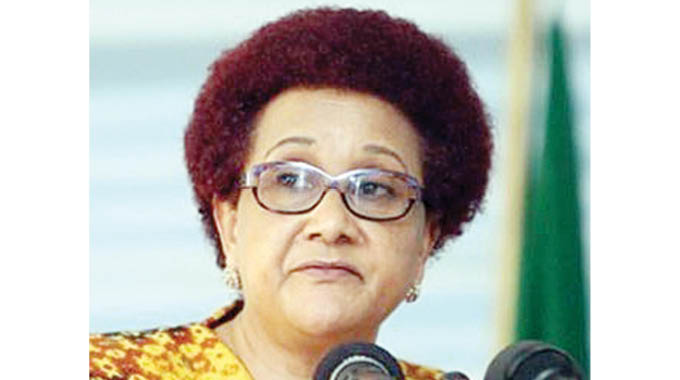
Kumbirai Nhongo
THE Sadc Protocol on Employment and Labour is to be reviewed in the context of changing global dynamics in the labour market. Sadc Ministers responsible for Employment and Labour approved the development of a new protocol at their annual meeting held recently in Dar es Salaam, Tanzania.
According to a statement released soon after the meeting, the “new Protocol on Employment and Labour is expected to accelerate progress towards a harmonised and coordinated regional labour market that can deliver on the decent work agenda.”
The current Protocol on Employment and Labour adopted in August 2014 has been ratified by only one Member State, meaning that it is yet to enter into force. The process of approval of a regional legal instrument requires, first, signing, and then ratification, a process that differs from country to country.
Ministers for Employment and Labour have also approved the Sadc Labour Migration Action Plan (2020-2025). The plan is premised on the notion that well-managed labour migration is mutually beneficial and can facilitate greater development and economic stability for all countries in the Sadc region. The ministers urged Member States to commit funds towards implementation of the plan, and commended the International Labour Organisation and the International Organisation for Migration for having mobilised financial resources for the plan.
A protocol “enters into force” following ratification by two-thirds of the 16 Sadc Member States, at least 11 countries. This advances the regional law from being a stated intention to actual application. The Protocol on Employment and Labour will be reviewed to align its objectives to global targets and emerging issues such as decent work and social security.
A protocol that is acceptable to all Member States will make it easier for the employment and labour sector in the region to promote common interests through deeper cooperation among the various stakeholders.
The Sadc Executive Secretary, Dr Stergomena Lawrence Tax said the revised Protocol will be “an essential tool to provide strategic direction on the employment and labour agenda in the Sadc region.”
She said that, in addition to revising the protocol, a comprehensive policy framework is being developed to address decent work deficits in the region.
“In order to put in place strategies and mechanisms for addressing decent work challenges for the region, in particular, employment creation, the Secretariat is coordinating the development of a comprehensive employment and labour policy framework.”
She said this is in addition to the key policy instruments that have been developed such as the Labour Migration Action Plan and the Guidelines on Portability of Social Security Benefits. “The instruments are crucial in facilitating greater labour migration which, in turn, promotes skills-sharing among Member States in support of industrialisation and regional integration.” Dr Tax said that the policy development exercise is coinciding with the formulation of the Vision 2050 and the Revised Regional Indicative Strategic Development Plan (RISDP) 2020-2030.
These two strategic documents are expected to be presented for approval at the 40th Sadc Summit of Heads of State and Government scheduled for August in Maputo, Mozambique. On dispute prevention and resolution, the Ministers responsible for Employment and Labour tasked the Secretariat to develop draft Guidelines on Labour Dispute Prevention and Resolution in Sadc and to report on progress at their next meeting. Addressing dispute prevention and resolution is critical since industrial strikes and labour disputes are not conducive to sustainable investment and growth of enterprises in the region. It is therefore important for all Sadc Member States to strive towards strengthening multi-sectoral engagement and coordination involving all key sectors and actors to promote full and productive employment.
The meeting of Sadc Ministers responsible for Employment and Labour and their social partners was convened to review progress in the implementation of various commitments to advance decent work in the region. It also underscored the need for the Sadc region to address the challenges and opportunities posed by the future of work, noting in particular the need to maximise the job creation potential of the ongoing technological transformation. The Ministers called on Member States to promote job creation as one of the means to fully address poverty and inequality, and for concerted action needed in addressing the youth unemployment challenge. The meeting was held under the theme “Promoting Labour Market Stability and Harmonious Industrial Relations for Sustainable Development.”
